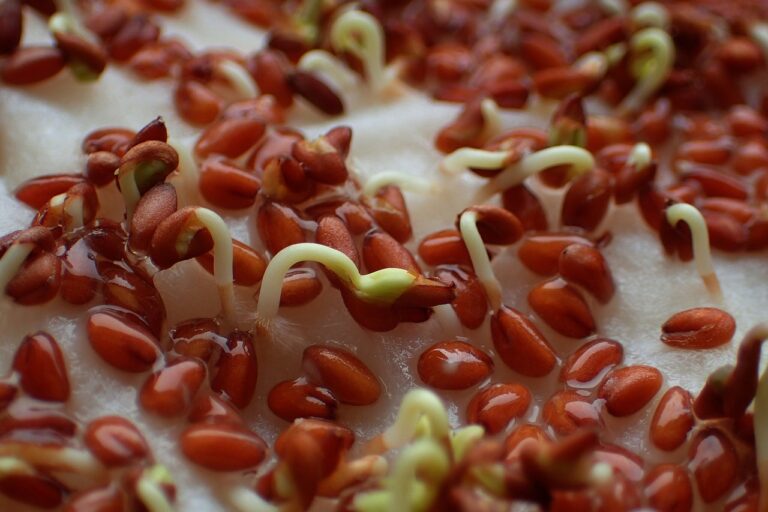The Surprising Health Benefits of Traditional Middle Eastern Fermented Foods
Fermented foods have been an integral part of Middle Eastern cuisine for centuries, and incorporating them into your diet can offer a range of benefits. One key advantage is the probiotics present in these foods, which can promote a healthy gut microbiome and aid digestion. This can contribute to improved overall gut health and may even boost your immune system.
Furthermore, traditional Middle Eastern fermented foods are often rich in vitamins, minerals, and enzymes. These nutrients are not only beneficial for your body’s daily functioning but can also enhance the bioavailability of other nutrients in the foods you consume. By including these fermented delicacies in your diet, you may experience increased nutrient absorption and potentially improve your overall health and well-being.
The History of Fermented Foods in Middle Eastern Cuisine
Fermented foods have long been a staple in Middle Eastern cuisine, with their history dating back thousands of years. The process of fermentation was not only used as a method of preserving food but also for enhancing flavors and promoting digestive health. Ancient civilizations in the Middle East, such as the Sumerians and Egyptians, harnessed the power of fermentation to create a variety of dishes that are still enjoyed today.
One of the most well-known fermented foods in Middle Eastern cuisine is yogurt, which is believed to have originated in the region thousands of years ago. The process of fermenting milk to create yogurt was not only a way to prolong the shelf life of dairy products but also a means of harnessing the probiotic benefits of the fermentation process. Yogurt has since become a versatile ingredient in Middle Eastern cooking, used in everything from marinades to desserts, and continues to be a beloved food in the region.
• Yogurt is a staple in Middle Eastern cuisine, believed to have originated in the region thousands of years ago
• The fermentation process of milk to create yogurt was used for preserving dairy products and promoting probiotic benefits
• Yogurt is a versatile ingredient in Middle Eastern cooking, used in marinades, desserts, and various dishes
• Ancient civilizations like the Sumerians and Egyptians harnessed fermentation to create dishes that are still enjoyed today
How Fermentation Enhances the Nutritional Value of Foods
Fermentation is a traditional food preservation method that not only enhances the flavor and texture of foods but also significantly increases their nutritional value. During the fermentation process, beneficial bacteria and enzymes break down the carbohydrates and proteins in the food, making them more easily digestible and increasing the bioavailability of essential nutrients. This transformation leads to a higher concentration of vitamins, minerals, and antioxidants in fermented foods, making them a powerhouse of nutrition.
Furthermore, fermentation can also boost the gut-friendly bacteria in our digestive system, promoting better gut health and overall well-being. These beneficial bacteria produced during fermentation can help improve digestion, strengthen the immune system, and even enhance mood and cognitive function. By incorporating a variety of fermented foods into your diet, such as yogurt, kefir, kimchi, and miso, you can not only enjoy their unique flavors but also reap the numerous health benefits they offer.
What are some examples of traditional Middle Eastern fermented foods?
Some examples of traditional Middle Eastern fermented foods include yogurt, kefir, pickles, and fermented vegetables like pickled turnips.
How does fermentation enhance the nutritional value of foods?
Fermentation enhances the nutritional value of foods by increasing the bioavailability of nutrients, breaking down anti-nutrients, and adding beneficial probiotics to the food.
What are the health benefits of including fermented foods in your diet?
Including fermented foods in your diet can help improve digestion, boost immune function, and promote overall gut health due to the presence of probiotics and beneficial bacteria.
What is the history of fermented foods in Middle Eastern cuisine?
Fermented foods have been a staple in Middle Eastern cuisine for centuries, with techniques passed down through generations. These foods were traditionally used for preservation and flavor enhancement.
Are fermented foods suitable for everyone to consume?
While fermented foods can provide numerous health benefits, some individuals may need to be cautious, such as those with histamine intolerance or certain gut conditions. It is always best to consult with a healthcare professional if you have any concerns.







